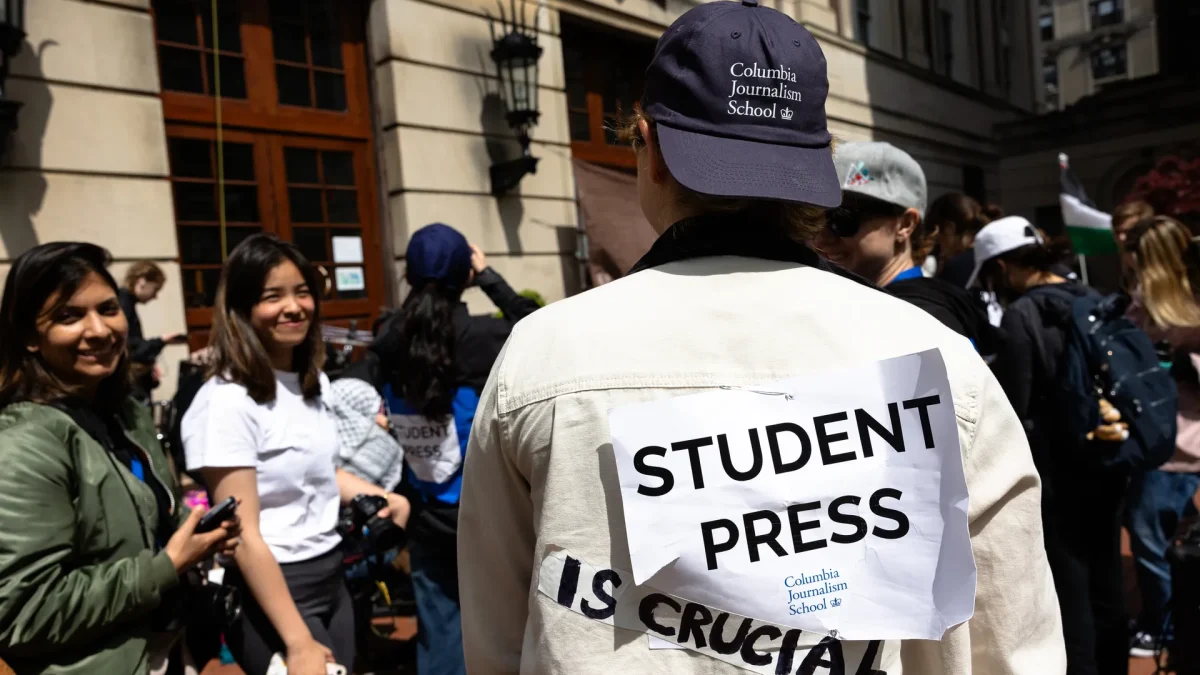Note: This article is a part of the Southerner’s special edition coverage of South’s 2024 budget cuts.
When information about the new staff layoffs and budget cuts was dispersed to staff and students, the news was initially met with shock and overwhelming sadness. For some teachers, the provisional changes meant unexpected employment insecurity and the loss of not only a job, but a community. For others, it meant the loss of friends and respected peers. For students, the loss of role models, trusted figures in their life, and pillars of their community.
As the emotional gut-punch of the budget cuts sank in, and the community grieved what had happened, the focus shifted from processing the emotions that came with the provisional budget, to finding answers.
One point of surprise for the teachers that were affected by the layoffs was the process through which they were told that their contracts would not be renewed for the coming school year. Teachers were called to the office by Principal Afolabi Runsewe, and told briefly that they were being let go. “It was difficult to receive that news and not have any time afterwards to be able to process. I had to go back to teaching classes immediately afterwards,” said Corinna Obermayr.
This was a major shift from previous administrations’ precedent of canvassing, which means calling teachers in and asking them whether they were planning on staying at South for subsequent year. After which administration would negotiate to figure out who would and wouldn’t be renewed. The distinct lack of canvassing for this round of budget cuts became a point of contention for teachers and staff, who found the change in the process unbecoming.
The disregard in procedure was foreign and unexpected for many staff members. The lack of transparency caused confusion and chaos among students and teachers. “My general understanding is that everyone, from teachers to even administration, didn’t know [the layoffs were coming],” said Obermayr. In large part, the pivot somewhat made sense. The sheer quantity of staff affected in this iteration of layoffs meant that time was shorter than usual, and if the process took too long, teachers would likely hear through each other, amplifying the blow of the news. “There’s no good way to do this when you get your budget on the 1st and have to submit your budget tie-out on the 15th,” said Runsewe. But in context, although understandable, the lack of the proper process caused major upset for staff and didn’t provide the necessary sensitivity to the situation. The questions and scrutiny around this shift were amplified amidst other departures from standard practice throughout the communication process.
Upon hearing the news, the community’s first question was which teachers specifically were being let go, and how that decision was made. Due to the ages of the cut teachers, it was easy to deduce that seniority-order played a role in the decision. But the community wanted to see the specific budget changes that were proposed, and how they directly implicated those teachers. “I don’t know what they have and haven’t been shown in the past, but I expected as a person on the budget committee to get insight into the budget,” said Abby Gaul, a social studies teacher and member of the budget committee. As staff and students reached out to the administration and staff members of the Budget Committee, they were told that the budget meeting was not much of a collective decision, as was typically the case, and instead more a presentation of a pre-finalized provisional budget. Science teacher Randy Hedlund recounted his experience at the meeting saying, “I wouldn’t even call it a committee; it was really a focus group. Only one representative from every department was present. The meeting only lasted 40 minutes and we were provided with very limited information. There wasn’t much discussion or any voting. It seemed like final decisions were already made and we were receiving an overview of it.”
Adding to this preexisting sense of confusion, a delay in the production of pamphlets that outlined the upcoming changes meant that community members reaching out to Principal Runsewe for information on the budget were turned away, adding to the distrust that permeated conversations about the situation at the school.
However, the following week, pamphlets that included information about the size of the cuts, the necessary number of staff cuts, and surveys of families that were used in the process, were released to staff members, putting to rest some of the frustrations aimed at administration and Principal Runsewe. The statistics and information laid out in the pamphlet painted a picture of inevitability, especially considering the strain the district put on South. Following the pamphlet’s distribution, analysis and discussion rapidly shifted to the wider causes of these changes: redistricting, charter and private schooling, coverage of South and MPS writ-large, budgeting inefficiencies, and more.
Attitudes about the transparency from administration throughout the cuts vary, and the process was certainly imperfect. It’s increasingly clear in the aftermath of the cuts that the administration was dealt an incredibly bad hand, and in many ways, did the best they could given the circumstances. It is also true that this situation is undeniably devastating for staff and students, and will have lasting effects on not only South, but the lives within it. While admins hands may have been tied, some staff would agree that it shouldn’t change the basis in which these kinds of procedures occur. “In past years when I and the Site Council have been involved, we would assign a budget committee to work with the principal about upcoming cuts. [Site council is a group of parents and teachers who work with the principal to improve programs and school budgets. All Minneapolis schools have site councils.] We would ask all staff members if they wanted to volunteer. My suggestion this year is that we do that and open it up to anyone interested in participating for the sake of transparency, but that didn’t happen,” said Hedlund.
As the South community reckons with the heavy news of the budget changes and the larger issues they represent, it’s increasingly striking a balance between valid, collaborative, criticism of administration, and a greater focus on the district and state-level decision-making that played an equal if not greater part in getting South where it is. Figuring out where to direct student and staff frustrations in a way that’s conducive to change is the next step in our fight for a better South in the wake of these changes. Maintaining transparency between administration, students and staff throughout that process is crucial to bring the South community agency even through adversity.





